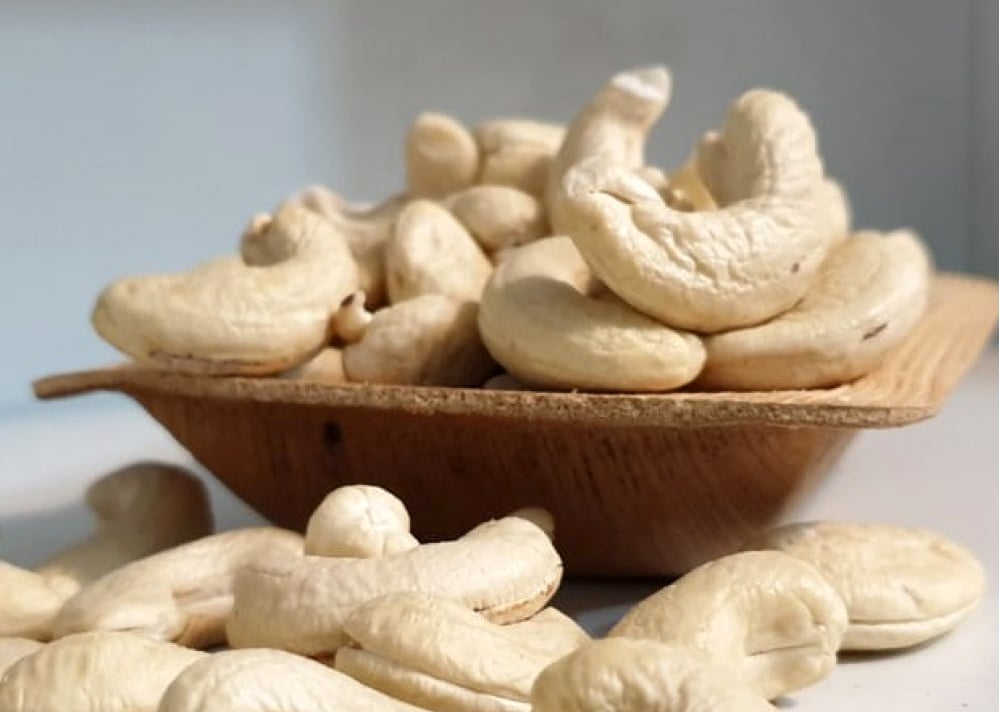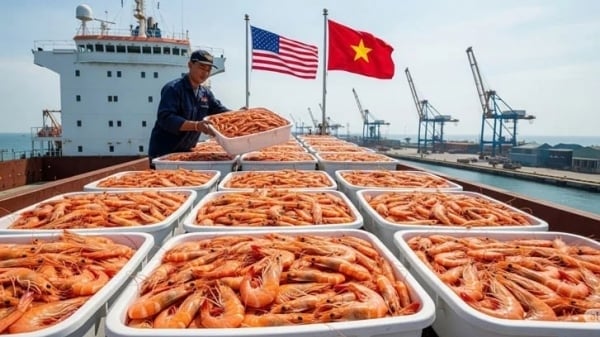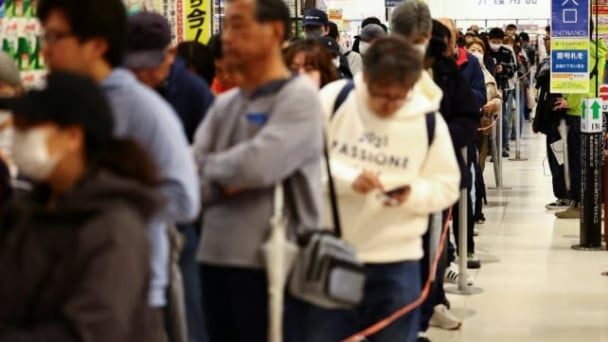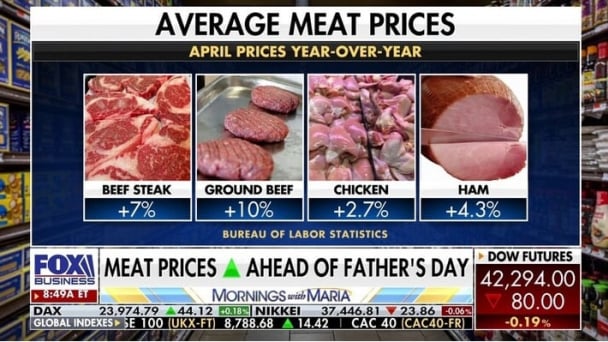June 15, 2025 | 11:45 GMT +7
June 15, 2025 | 11:45 GMT +7
Hotline: 0913.378.918
June 15, 2025 | 11:45 GMT +7
Hotline: 0913.378.918

There are warnings about the decline in the quality of Vietnamese cashew nuts.
Vietnam's cashew nut exports in the first 9 months of this year grew well in quantity, but the export price of cashew nuts decreased quite a lot. Specifically, data from the General Department of Customs shows that in the first 9 months of 2023, Vietnam exported 453 thousand tons of cashew nuts. An increase of nearly 19% in volume, but export value only increased by 13.5% and reached 2.6 $ billion.
Export volume increased significantly faster than turnover because the average export price of cashew nuts decreased. According to the Import-Export Department (Ministry of Industry and Trade), in the first 8 months of 2023, Vietnam's average cashew export price reached $ 5,760/ton, down 3.6% compared to the same period in 2022.
There are many reasons why the average export price of cashew nuts has decreased, including quality issues. According to Mr. Pham Van Cong, Chairman of the Vietnam Cashew Association (Vinacas), due to the decline in food safety and hygiene of Vietnamese cashew nuts, the price of Vietnamese cashew nuts is currently lower than the price of Indian cashew nuts.
Information from Vinacas shows that, in recent times, there have been complaints and warnings from some customers and markets about the quality of many Vietnamese cashew nut shipments. Specifically, two nut and food industry associations in Europe and the US and a number of large customers have issued written warnings about the decline in the quality of Vietnamese cashew nuts. In particular, the indicators that are often warned about are worms (insects) living in cashew nuts, pesticide residues, and strange impurities...
Mr Bach Khanh Nhut, Vice President of Vinacas, said that the last months of the year are a time of heavy rain, making cashew nuts susceptible to mould and insects. This is the time when factories increase production to promptly meet rising import demand at the end of the year. Therefore, food safety control in cashew processing may no longer be as strict as before. Even the requirement to ensure a quarantine period after using disinfectant drugs is not complied with by many factories because of delivery pressure, leading to chemical residues on exported products.
Faced with that situation, in recent times, Vinacas has regularly advised member businesses about warnings from abroad, about the need to strengthen food safety control during the control process... However, Mr. Cong admitted that the Association can only stop at recommendations, and does not have the right to inspect or sanction. Meanwhile, the warned shipments mainly come from businesses that are not members of Vinacas.
Therefore, Vinacas hopes that authorities in provinces with cashew processing industries, especially Binh Phuoc, it is necessary to strengthen inspection work to ensure food safety in cashew processing factories, thereby contributing to maintaining the quality, reputation and position of Vietnamese cashew nuts in the world market.
According to Mr Pham Van Cong, with the turnover achieved in the first 9 months of the year, combined with increased import demand from markets in the last months of the year, cashew nut exports this year can completely reach $ 3.2 billion.
The policy of cashew-growing countries in Africa is to develop the cashew processing industry and gradually reduce raw cashew exports. Therefore, they offer many preferential and supportive policies to attract investment in cashew processing factories. At the same time, with raw cashew exports, they regulate and strictly monitor the minimum export price; and impose high export taxes. But for exported cashew kernels, they exempt taxes. Meanwhile, both raw and cashew kernels when imported into Vietnam for processing and export are exempted from tax by Vietnam. This is a sad situation. The Government, ministries and branches need to look multi-dimensionally and objectively to help businesses overcome difficulties and continue to position Vietnamese cashew nuts in the international arena", Mr Bach Khanh Nhut emphasized.
"Another paradox happening in Vietnam's cashew industry is that the number of cashew kernels imported into Vietnam under a few extra steps and then export is increasing rapidly. This is a consequence of allowing the import of cashew kernels into Vietnam without applying measures to protect the domestic cashew processing industry.
The fundamental, strategic solution for the cashew industry to develop sustainably is to invest, strongly shifting to deep processing with diverse products, meeting the different needs and tastes of end consumers", Mr Bach Khanh Nhut pondered.
Translated by Hoang Duy

(VAN) Noting risks, report examines impacts of avian influenza, changing trade patterns since 2022, fish fraud, and shipping industry’s net-zero goals.

(VAN) Mr. Tran Quang Bao, General Director of the Forestry and Forest Protection Department, met and worked with the International Wood Products Association to promote cooperation in the field of timber trade.

(VAN) China's outbound shipments of rare earths in May jumped 23% on the month to their highest in a year, though Beijing's export curbs on some of the critical minerals halted some overseas sales.

(VAN) To sustain capital flow, administrative reform alone is not enough; what farmers truly need is an ecosystem where both government and businesses grow together in support.

(VAN) Vietnam and the United States are proactively working together, each in their own way, to ensure that every container of agricultural goods carries not just products, but also long-term trust and value.

(VAN) Stores have started selling rice from the government’s stockpile to feed demand for the staple.

(VAN) Omaha Steaks CEO says rebuilding cattle herds will take about a year to ease price pressures.